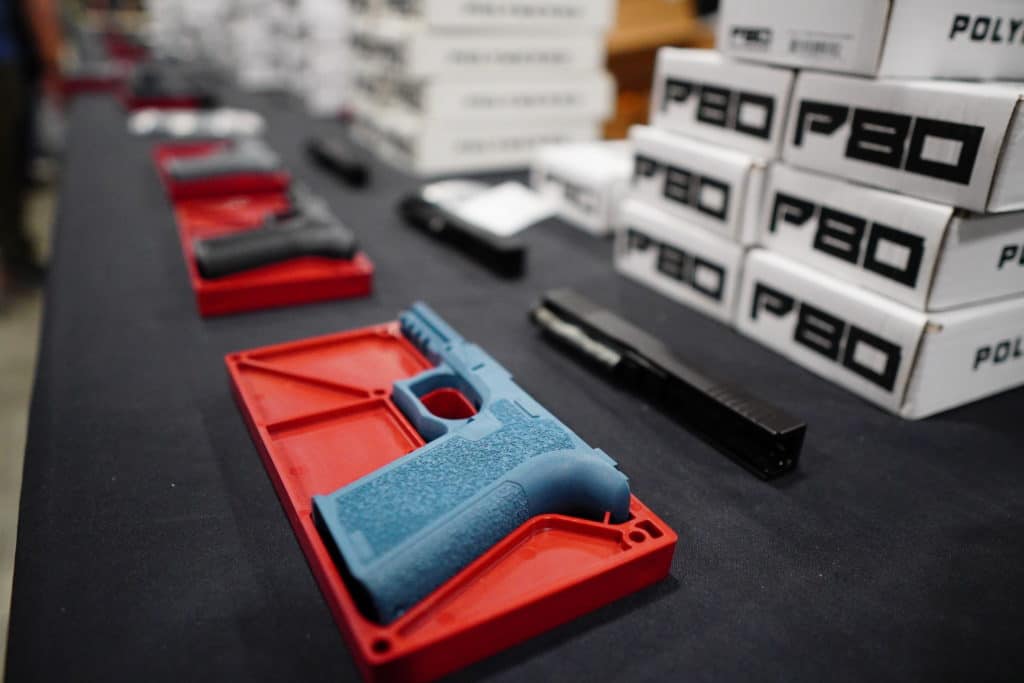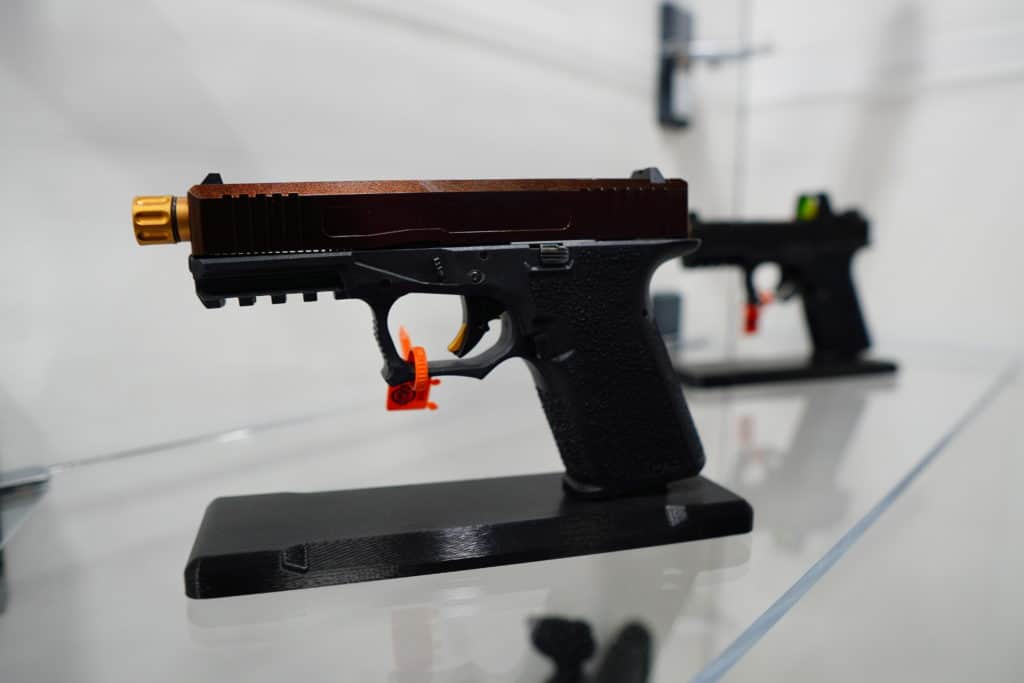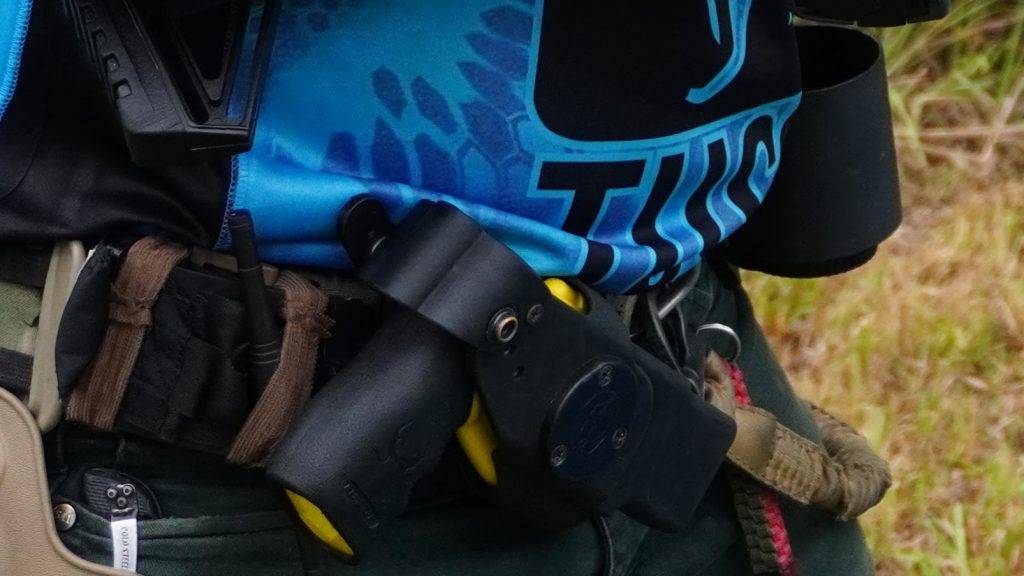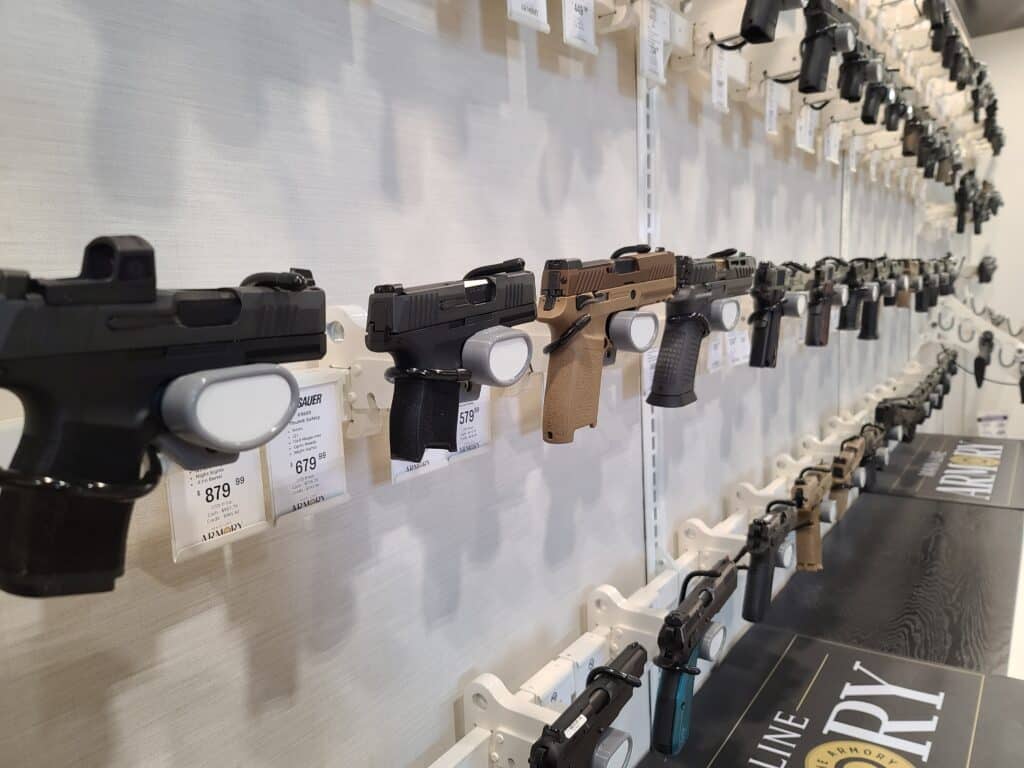The Supreme Court handed down another gun case this week.
It ruled in favor of the ATF’s Biden-era “ghost gun” kit ban. It argued at least some kits were a close enough fit to the underlying federal law for the ATF to regulate them. However, as I explore for members, it’s not clear how far the Court means for that authority to extend.
We also had a judge in New York uphold a stun gun ban for the first time since the Supreme Court ruled against a similar ban back in 2016. And a pair of Ninth Circuit judges grapple over where the line between acceptable and abusive gun permitting systems under the Bruen precedent.
Plus, one national gun-control group laid off most of its staff. Cam Edwards of Bearing Arms also joins the podcast to give his take on Trump’s latest gun moves. And we have a bunch of stories down in the links, including a new federal investigation into California’s gun permitting practices.

Supreme Court Upholds ‘Ghost Gun’ Kit Ban
By Stephen Gutowski
The Bureau of Alcohol, Tobacco, Firearms, and Explosives (ATF) did not exceed its authority when it reclassified unfinished gun part kits under the same rules as fully functional firearms.
That’s the conclusion of the Supreme Court of the United States (SCOTUS). On Wednesday, a 7-2 majority upheld the Biden-Era ATF rule that requires makers and dealers of unfinished frames and receivers to obtain federal licenses, serialize their products, and conduct background checks on customers. The Court found the rule, designed to prevent the proliferation of unserialized guns–often labeled “ghost guns” because they can’t be traced back to the original manufacturer, was valid because The Gun Control Act of 1968 (GCA) grants the ATF latitude in how it defines what is and isn’t a regulated gun part.
Click here to continue reading.

Analysis: What the Supreme Court ‘Ghost Gun’ Ruling Does [Member Exclusive]
By Stephen Gutowski
The Supreme Court has upheld the ATF’s “ghost gun” kit ban, but its ruling was fairly narrow. So, what exactly does it do?
On Wednesday, a 7-2 majority ruled the Biden-era survived what it categorized as a facial challenge. It argued there was at least one scenario where the items the ATF targeted fit within the underlying statute: now-defunct Polymer80’s “buy build shoot” kit and its unfinished frames.
“Yes, perhaps a half hour of work is required before anyone can fire a shot,” Justice Neil Gorsuch wrote for the majority in Bondi v. VanDerStok. “But even as sold, the kit comes with all necessary components, and its intended function as instrument of combat is obvious. Really, the kit’s name says it all: ‘Buy Build Shoot.'”
If you’re a Reload Member, click here to read more. If not, join today for exclusive access!

AD: The Dispatch is For The Silent Majority of Self-Directed Thinkers
Tired of partisan media cheerleading for one team? Get the news without the drama when you join The Dispatch.
Jonah Goldberg and Steve Hayes launched The Dispatch in 2019 to build an enduring presence on the center-right for original reporting and thoughtful analysis. No insulting clickbait, no false outrage, no annoying auto-play videos—just reliable journalism that prioritizes context, depth, and understanding.
Join half a million loyal readers and start reading The Dispatch today.
Reload readers: Claim your exclusive 30-day, all-access FREE trial today.

National Gun-Control Group Lays Off Most Staff
By Stephen Gutowski
March For Our Lives is slashing its employees and appointing a new leader.
The gun-control group announced it would cut ties with 13 of its 16 full-time staffers last week. It also named a new executive director. Jaclyn Corin, a 24-year-old Parkland survivor and group co-founder, will take the reins as the organization attempts to navigate bumpy terrain in the wake of the 2024 election.
“We are facing financial challenges as an organization, not unlike many nonprofit advocacy organizations in this time,” Corin told The 19th. “I am sure things would look differently with a different outcome of the election, but these are the systems and circumstances in which we have to make adjustments based on the financial situation we find ourselves in. It is incredibly unfortunate that these cuts have to happen.”

Federal Judge Becomes First to Uphold a Stun Gun Ban Since 2016 Supreme Court Case
By Jake Fogleman
New Yorkers may be able to carry a firearm for self-defense, but those seeking a less-lethal option will continue to be out of luck following a new federal court ruling.
On Monday, US District Court Judge Edgardo Ramos upheld a New York state ban and a separate New York City ban on the sale and possession of stun guns and tasers. He determined that the plaintiffs had the burden of introducing specific evidence of how common those weapons are and that they failed to show they were popular enough to be protected by the Second Amendment.
“In sum, because Plaintiffs have failed to provide any evidence that stun guns and tasers are in ‘common use’; they have clearly not ‘set forth significant, probative evidence on which a reasonable fact-finder could decide in [their] favor,’” Ramos wrote Calce v. City of New York.

Podcast: Bearing Arms’ Cam Edwards on Trump’s Latest Gun Moves
By Stephen Gutowski
This week, we’re looking at a few actions the Trump Administration just took on gun policy.
To wade through those moves and navigate where the signs point, we’ve got Cam Edwards of Bearing Arms back on the show. We look at different stories from Health and Human Services (HHS), the Department of Justice (DOJ), and the Bureau of Alcohol, Tobacco, Firearms, and Explosives (ATF). As Cam noted, some were bigger deals than others.
You can listen to the show on your favorite podcasting app or by clicking here. Video of the episode is also available on our YouTube channel.
Plus, Contributing writer Jake Fogleman and I recap the en banc Ninth Circuit’s newest decision upholding California’s ban on magazines capable of holding more than ten rounds and its much-discussed video dissent from Judge Lawrence VanDyke. We also talk about a separate Ninth Circuit panel’s ruling striking down Hawaii’s unique restrictions on handgun sales. Finally, we cover a long awaited en banc Eleventh Circuit decision dealing with Florida’s post-Parkland ban on gun sales to adults under the age of 21.

Analysis: Judges Grapple with Gun Licensing Regimes ‘Put Toward Abusive Ends’ [Member Exclusive]
By Jake Fogleman
During Bruen, the Supreme Court implied that objective firearms licensing regimes are broadly constitutional—but only up to a point. A Ninth Circuit panel has new ideas for determining what that point is.
Last week, a three-judge panel for the appellate court struck down Hawaii’s requirement that a person buy a handgun within 30 days of obtaining a state-mandated purchase permit. It found that such a short permit validity window was “impermissibly ‘abusive.’”
“Accordingly, we affirm the district court’s judgment that this aspect of § 134-2(e) is unconstitutional under the Second Amendment,” Judge Daniel Collins wrote in Yukutake v. Lopez.
That language, deriding Hawaii’s purchase permitting process as “abusive,” is directly informed by what the Supreme Court of the United States (SCOTUS) has written. While SCOTUS invalidated subjective “may-issue” permitting regimes like the kind formerly in effect in New York, it also gave preliminary approval to a different system of permitting in a much-discussed footnote of the opinion.
If you’re a Reload Member, click here to read the rest. If not, buy a membership for exclusive access to this and hundreds of other stories!
Outside The Reload
Youngkin wields veto pen on final day to act on bills | The Center Square | By Shirleen Guerra
That’s it for this week in guns.
I’ll see you all next week.
Thanks,
Stephen Gutowski
Founder
The Reload





